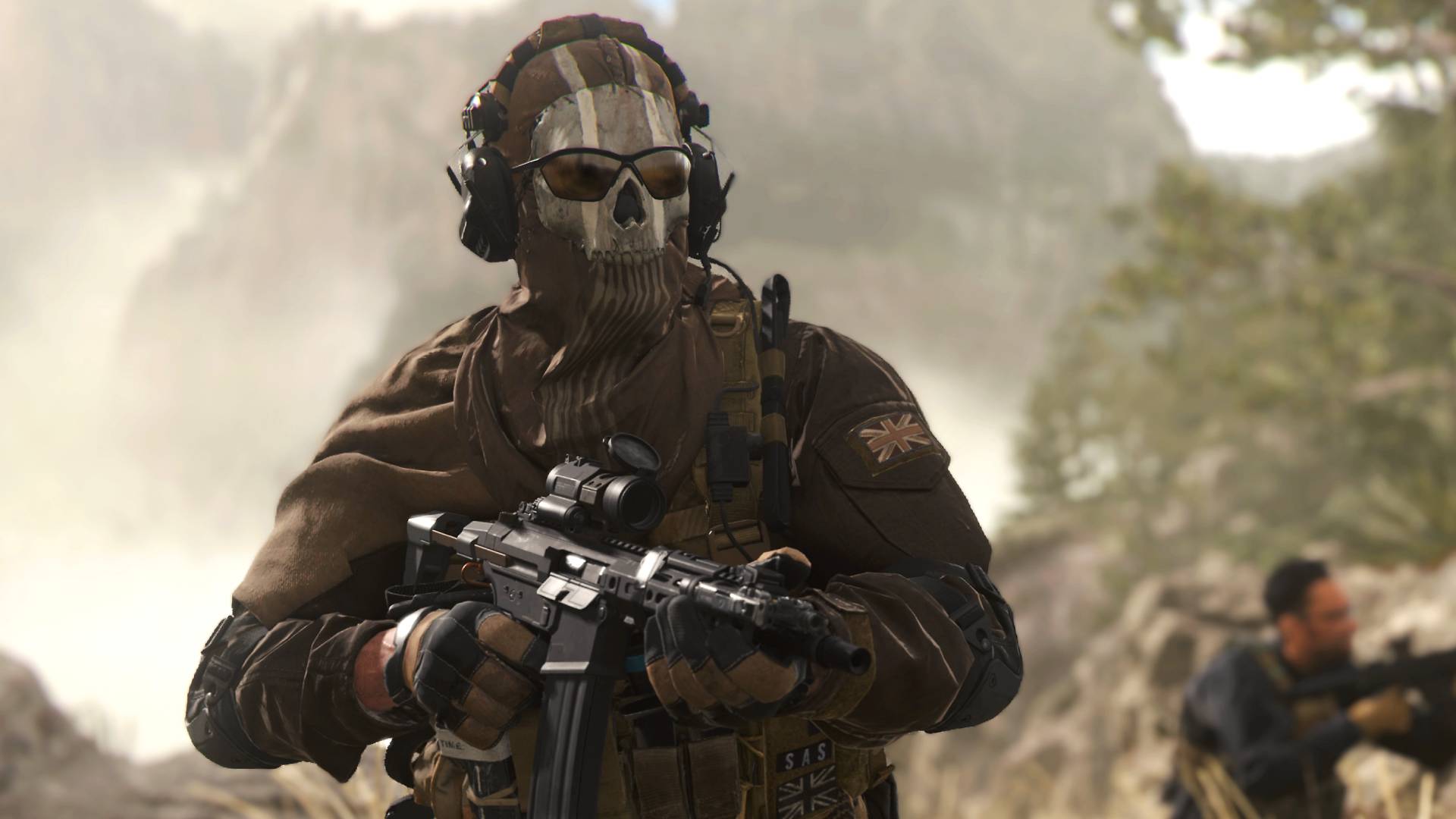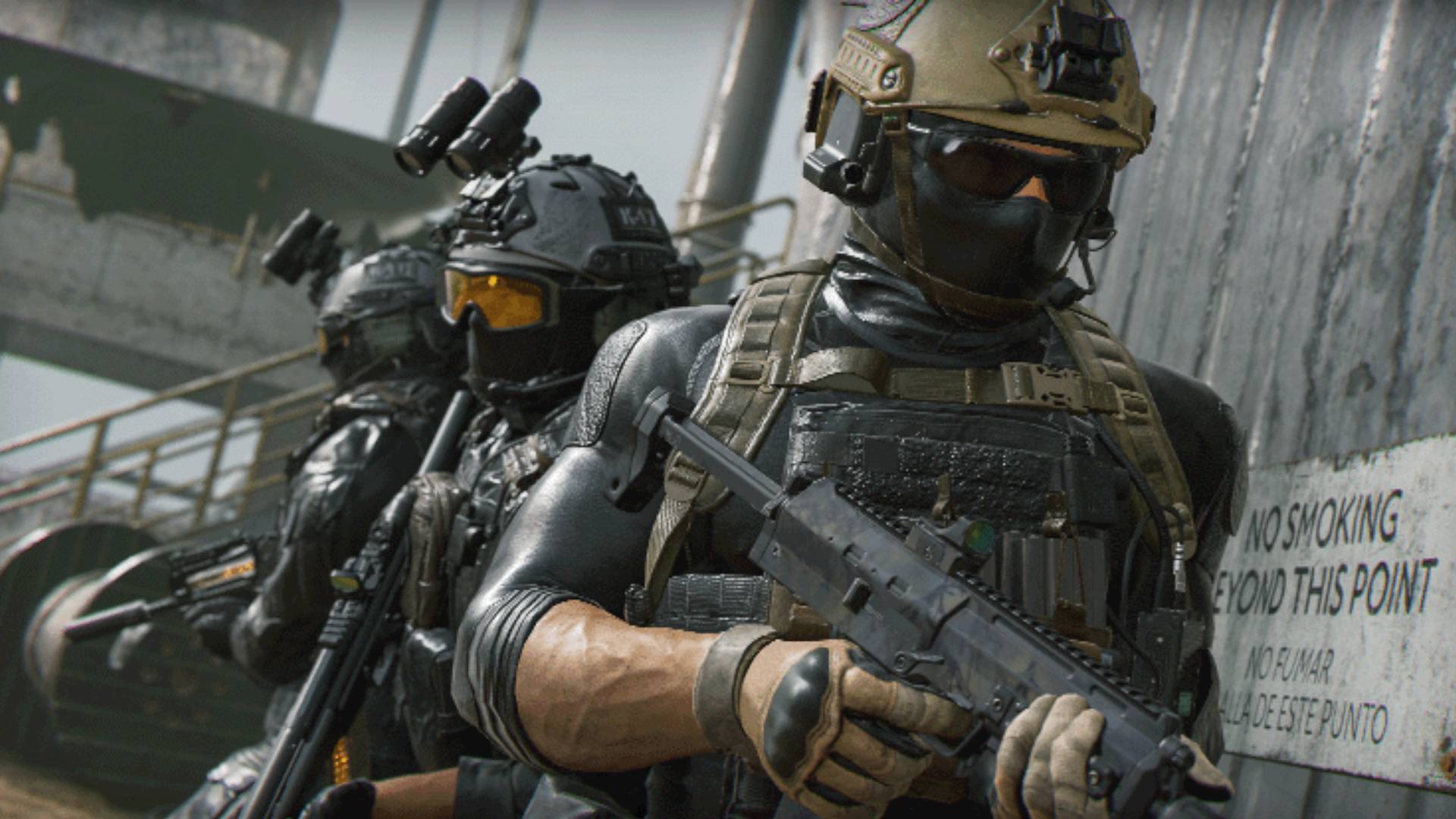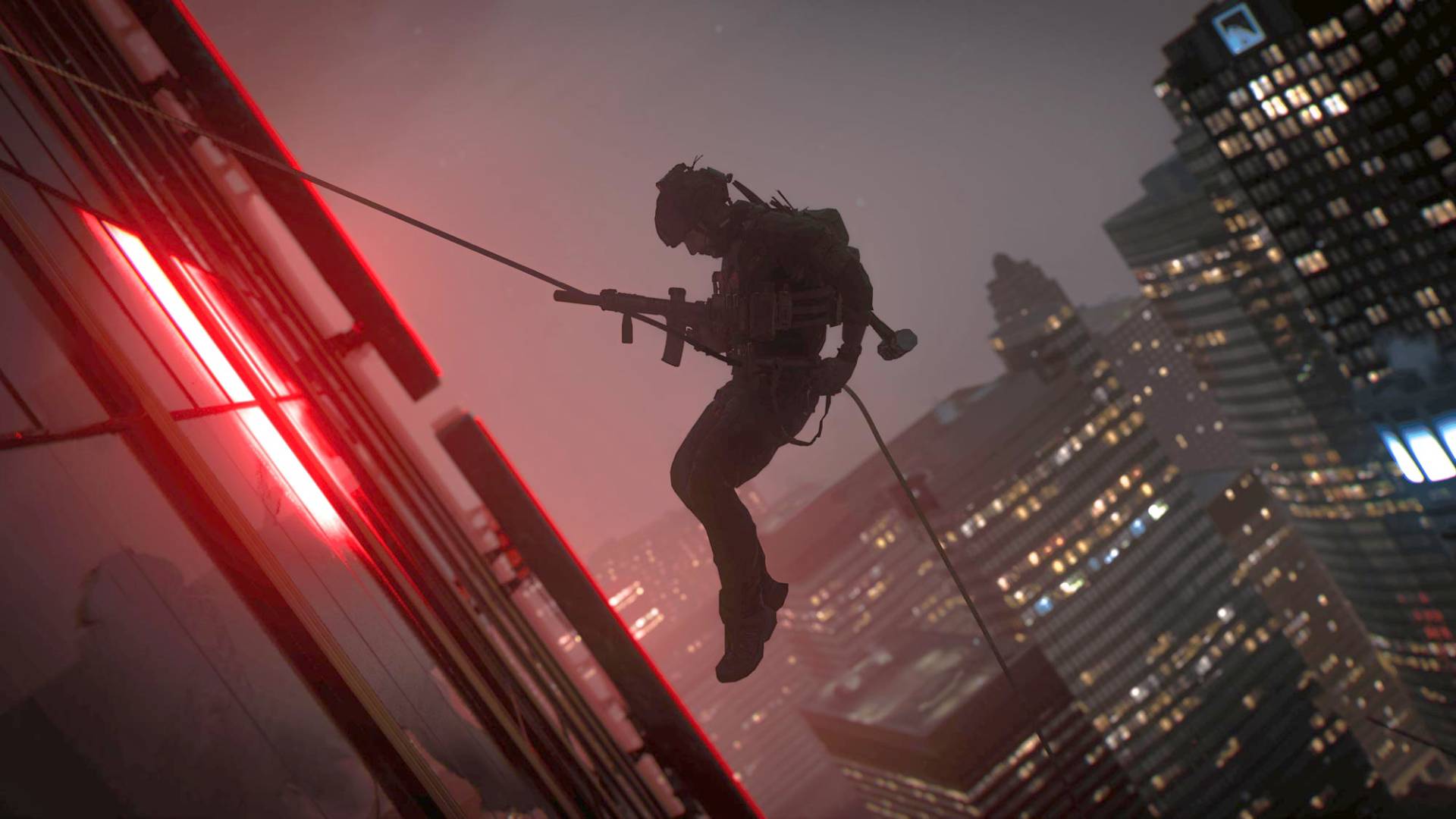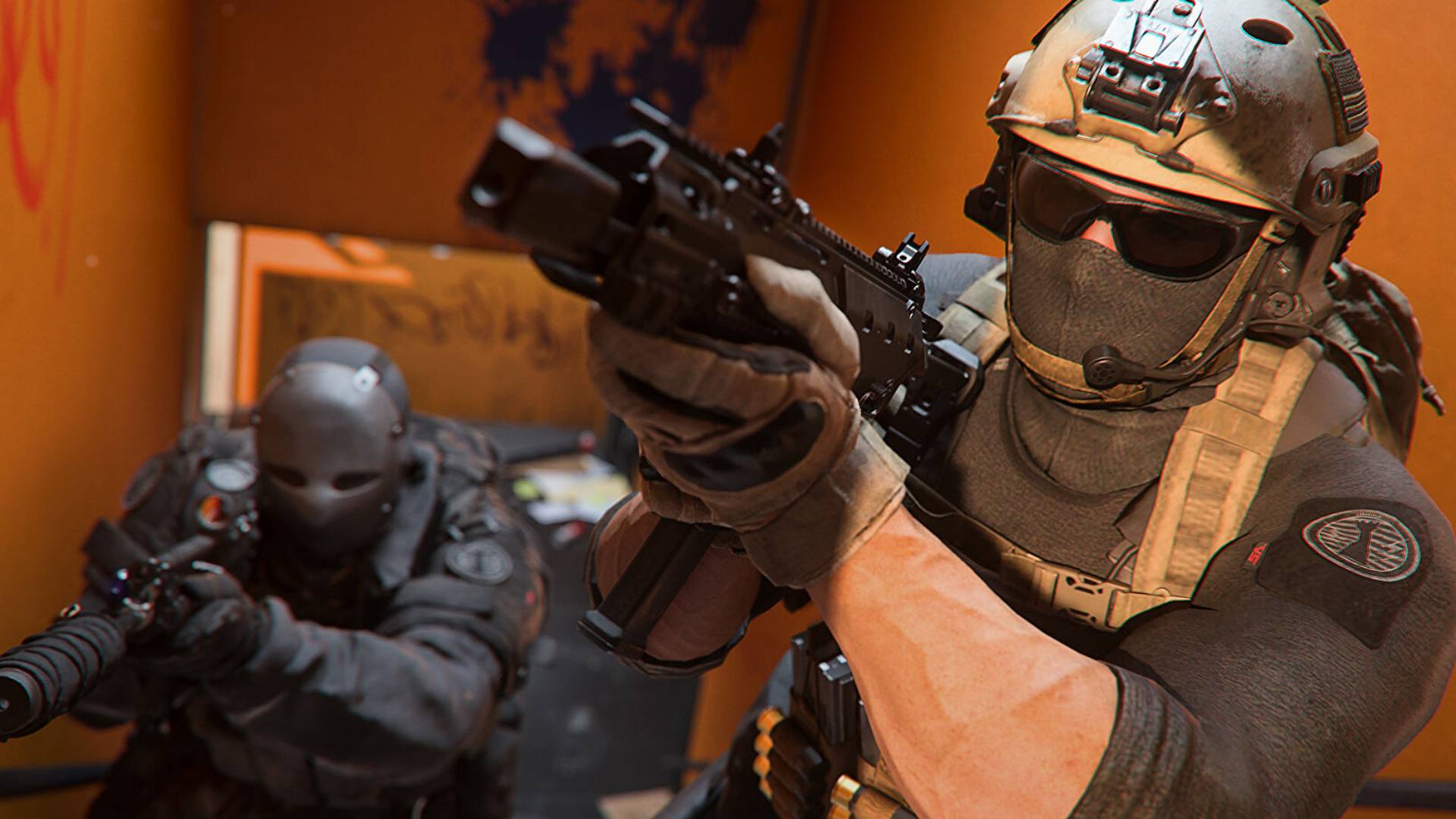You can't ignore the debt single-player games owe Call of Duty campaigns
Defending Burgertown

It was never supposed to be like this. When Infinity Ward formed in 2002, its founders Jason West, Vince Zampella, and Grant Collier brought a full development team over from 2015 Inc, where they’d previously made Medal of Honor: Allied Assault. By establishing a new studio, the team could get a better deal with new publishers Activision, and refine its formula for bombastic, Spielberg-ian WW2 combat in first-person perspective. Infinity Ward, then, was founded on the solo campaign.
The game it debuted with was called Call of Duty and the games industry proclaimed it absolutely excellent. “This kicks ass!” we all said, in eerie unison, when it was released in 2003. People talked like that then. Wrestling was big.
Every crumbling French villa beset by gunfire coming from nowhere in particular, every wall occupied by hollering squadmates
Its tightly scripted single-player campaign earned Call of Duty such universal praise. It was like shooting your way through a series of perfectly orchestrated blockbuster movie sets; every crumbling French villa beset by gunfire coming from nowhere in particular, every wall occupied by hollering squadmates who spoke only in lines from Saving Private Ryan. It told not one story but three, shifting perspectives to great effect and saying something about the futility of one soldier’s contribution in the process.
The suicide runs you the Soviet campaign forced you into felt especially poignant and edgy for the time. You were having fun shooting things, yes, it was bordering on pulpy wartime comics material, yes, but afterward, you were left with a ringing in your ears and a sense that life was senselessly cheap in the conflict you just went on a sightseeing tour of.
Deep roots

Modern Call of Duty has an unbelievably fragile connection back to its earliest release. For years, it’s been more like an arcade of different experiences, all incredibly polished and expensive-looking, often very different in tone. Never is that more true than in its most recent release, Modern Warfare 2, which comprises a revamp of its Warzone battle royale live service, a traditional PvP multiplayer release, a co-op mode, and a campaign. Tonally it’s absolutely all over the shop, but we’re used to that now.
We’re also becoming used to the yearly influx of ‘people still play Call of Duty campaigns?’ discourse when a new one arrives. The central tenet to this topic of debate is that single-player, story-based shooters are outdated, and anybody talking about them might as well be shouting at someone in a Wendy’s or telling you to eat less smashed avo on sourdough and use the money you save to buy a penthouse apartment.
The games industry needs Call of Duty single player because they set a bar.
But Call of Duty’s continuing campaign releases are vital. Not just because they give voice acting’s gruffest men a guaranteed gig every year, or for their uncanny ability to set new records for storage space demands annually. Even if you don’t like their stories, their corridors, or pointing guns at babies in night vision, the games industry needs Call of Duty single player because they set a bar.
Sign up for breaking news, reviews, opinion, top tech deals, and more.
One of a kind

Very few studios worldwide have the budgetary and human resources to make single player shooters like this. From a technical standpoint, these are astonishing productions, and how their sound design, environments, and voice talent come together feels like interactive Hollywood. That’s not an estimation of artistic merit – you don’t give a Marvel movie a best picture Oscar, but you might give it a nod for its VFX.
It’s single player shooter design untamed, the way games seemed to be bankrolled 20 years ago. Granted, the game engine is still probably a heavily modified version of Quake II under all the middleware and tacked-on advancements, so it never ushers in a new era of graphical fidelity. What it does do is use absolutely everything at its disposal to hold your attention. Buildings explode. Planes crash. Arrays of computer screens show the paths of incoming nuclear missiles. People shout, double-cross, kill, and become involved in helicopter crashes roughly every 40 seconds. Proust wouldn’t put his name to it, but I can clearly remember more Call of Duty set-pieces than passages from In Search of Lost Time.
Drawing a line

And that gives the rest of the industry a tide mark, in terms of production. If that’s what’s possible with a Call of Duty budget, what can we achieve? Which tricks can we steal, and how can we achieve those effects in a more cost-effective way?
We’ve seen indies like Insurgency Sandstorm manage to nab all the vital parts of a Call of Duty firefight to great effect in the multiplayer space, and if there are fewer obvious examples in single-player, it’s probably only because it’s increasingly difficult to actually make such a game.
You don’t have to like it, and in fact, it’s even more useful to other studios if you don’t – as long as they know why.
Far Cry and the recent Wolfenstein revival certainly learned plenty from Call of Duty’s relentless solo campaign release cadence, though. They learned how to frame an antagonist, giving them long, indulgent monologues and fostering hatred for them by making you listen, all passive and unable to shoot things. And they learned about escalation, how to stage fights that feel unwinnable in environments that feel too chaotic to navigate, and still just about guide the player to what feels like an improbable victory.
Perhaps just as important is Call of Duty single player’s status as The Establishment. You don’t have to like it, and in fact, it’s even more useful to other studios if you don’t – as long as they know why. Titanfall 2, the poster child of underappreciated single player campaigns, seems to be a direct response to Call of Duty’s dominance in that space. It takes your expectations and turns them, in a way that feels impossible without the context of Activision’s cash cow looming large somewhere off in the distance.

Ad creative by day, wandering mystic of 90s gaming folklore by moonlight, freelance contributor Phil started writing about games during the late Byzantine Empire era. Since then he’s picked up bylines for The Guardian, Rolling Stone, IGN, USA Today, Eurogamer, PC Gamer, VG247, Edge, Gazetta Dello Sport, Computerbild, Rock Paper Shotgun, Official PlayStation Magazine, Official Xbox Magaine, CVG, Games Master, TrustedReviews, Green Man Gaming, and a few others but he doesn’t want to bore you with too many. Won a GMA once.